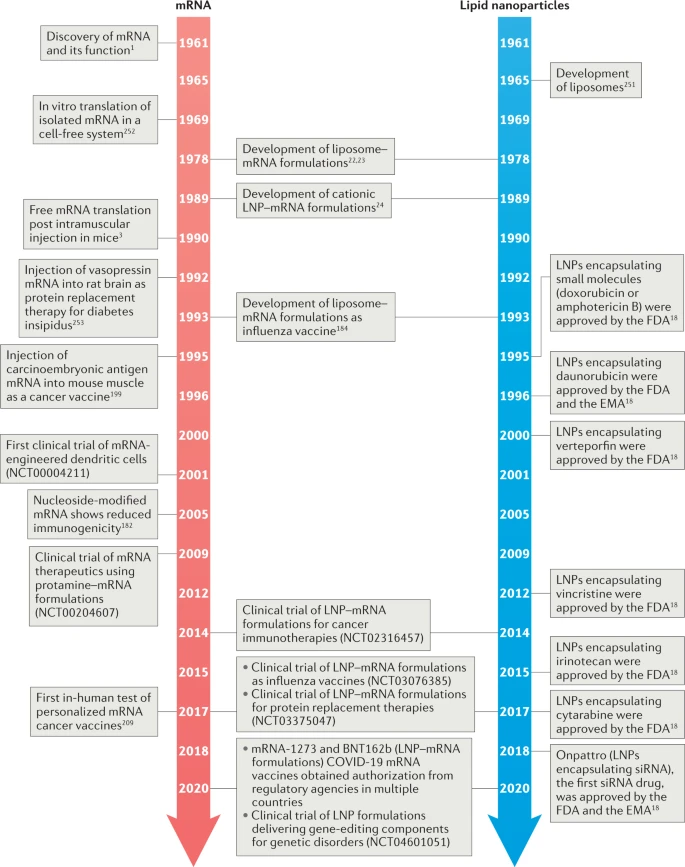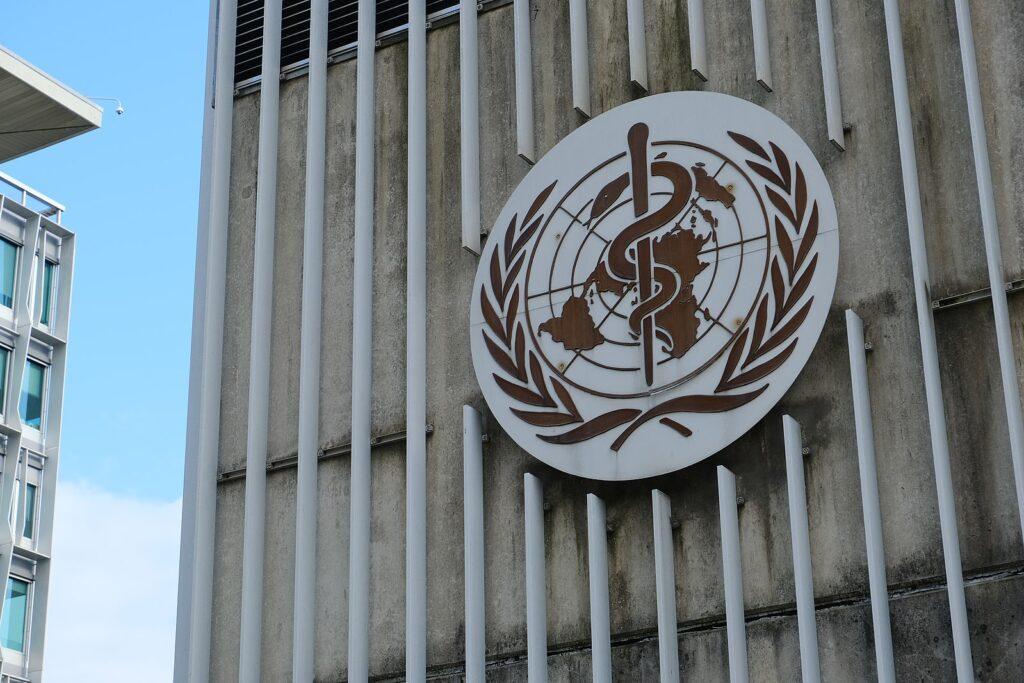Officials have maintained that mRNA COVID vaccines do not alter our DNA, but a new case filed in the Federal Court of Australia raises difficult questions about how reliable this assurance is.
Can COVID-19 vaccines alter my DNA? This question is posed on the Australian Government’s fact page about COVID vaccines. “No, COVID-19 vaccines do not alter your DNA,” states the government advice. “DNA is stored in the protected centre of our cells – the nucleus. The mRNA is broken down quickly by the body. It never enters the nucleus, and cannot affect or combine with our DNA in any way to change our genetic code.”
On this assurance, more 22 million Australians had received at least one dose of Covid vaccination as at 27 July 2023, according to figures released by the Department of Health and Aged Care.
But is the official advice correct? A new case filed in the Federal Court of Australia, on 6 July, contests that it is not, and that the consequences of the error may be devastating.

Victorian doctor and pharmacist Dr Julian Fidge is seeking an injunction to stop Pfizer and Moderna from distributing their mRNA COVID vaccines in Australia on the basis that the vaccines contain genetically modified organisms (GMOs) which were not approved by the appropriate regulator before being distributed en masse to Australians.
While Pfizer and Moderna obtained approval for their mRNA COVID vaccines from the Therapeutic Goods Administration (TGA), they did not obtain a licence from the Office of the Gene Technology Regulator (OGTR), which regulates GMO products in Australia.
Under the Gene Technology Act 2000, it is a serious criminal offence to sell or distribute GMO products without a licence from the Office of the Gene Technology Regulator (OGTR).
The case alleges that there are two GMO components in the mRNA COVID vaccines. It’s very simple, explains instructing solicitor Katie Ashby-Koppens, “These products are GMOs by mechanism, and by contamination.”

The mechanism is the LNP-mRNA complexes. As explained in many a journal article during vaccine rollout, the LNP-mRNA complexes feature two technological advances which were praised for making the speedy development and rollout possible.
The lipid nanoparticle (LNP) casing of the mRNA enables delivery of the mRNA into our cells, and the synthetic mRNA (mod-RNA) has been tinkered with just the right amount to prevent it from degrading too fast to do its job.
The case argues that decades of scientific research show that LNP-mRNA complexes are GMOs that have the capacity to integrate into the human genome.

The other GMO component named in the case is synthetic DNA contamination. In tests conducted on the mRNA monovalents and bivalents, scientist and genomics expert Kevin McKernan found excessive levels of DNA contamination – anywhere between 18-70 times above legal limits. McKernan’s findings are now being verified by other scientists.
If the allegations are found to be true, then the GMO nature of the LNP-mRNA complexes, coupled with McKernan’s findings of DNA contamination in the mRNA Covid vaccines, may have profound implications, for Australia and for the world.
There is already at least one peer-reviewed scientific paper demonstrating that the Pfizer Covid vaccine mRNA is able to enter the human liver cell line and reverse transcribe into DNA in vitro (meaning in a lab dish).
Additional studies are cited in the case materials showing the presence of spike protein mRNA in the nucleus of human cells, and evidence that acquired immune traits pass down to the offspring of mice pre-exposed to the Covid vaccine mRNA-LNP platform. The case argues that this suggestive that, once in the nucleus, vaccine mRNA can be transferred and integrated with chromosomal DNA.
“Every single person who has been injected with these products has received a GMO that has not been through the expert regulatory process in this country,” says Ashby-Koppens. “The human genome could be changed permanently, and no one was informed.”
“This is exactly what the Gene Technology Act 2000 was put in place to prevent,” says former barrister and legal counsel on the case, Julian Gillespie, who highlights that GMOs undergo rigorous testing in Australia, testing that the TGA is not qualified or equipped to oversee.
“By failing to apply for the appropriate licences from the Office of the Gene Technology Regulator, Pfizer and Moderna avoided very serious risk assessment questions and processes that are necessary to determine the safety of these products.”
However, the TGA maintains that allegations put forward in the case about the potential for mRNA vaccines to alter the recipient’s DNA are unfounded. A spokesperson for the TGA told Umbrella News,
“COVID-19 vaccines do not alter a person’s DNA. The mRNA in the vaccines does not enter the nucleus of cells and is not integrated into the human genome. Thus, the mRNA does not cause genetic damage or affect the offspring of vaccinated individuals.”
“The TGA continues to monitor the scientific literature associated with the SARS – CoV-2 virus and the various COVID-19 vaccines approved for use in Australia.”
With reference to the specific studies cited in the case materials, the TGA pointed Umbrella News to an RMIT ABC Fact Check post from 2022 purporting to ‘debunk’ claims that mRNA jabs are genotoxic. This is the same site that ‘debunked’ claims that COVID vaccines can cause menstrual disruption, before peer-reviewed scientific studies proved that they can and do (the post has not been corrected).
As evidence that it is “well established” that vaccine mRNA and protein do not enter the nucleus, the TGA provided a link to a Mayo Clinic fact page which provides no studies or scientific evidence in support of its claims.
“For regulators to brush Australians off by pointing to fact pages and unqualified Fact-Checkers is a game where they’ve turned the scientific onus of proof around onto the public,” says Gillespie. “In science, you have to work by the precautionary principle. Until you know that something is safe after rigorous testing, you must presume that it is not.”
“It has always been the mandate of the regulator to establish that the vaccine mRNA and spike protein do not enter the nucleus. They have never done that, so therefore, it is not well established.”
The TGA did provide one commentary article published in a scientific journal which pointed out that the in vitro liver cell line study cannot be extrapolated to generalise about in vivo findings (in a human, not a dish) without further research being undertaken.

This is correct, but Gillespie says that it misses the point. “The early signs are there, from 20 years of science on the LNP-mRNA platforms which demonstrate reverse transcription into DNA. The research is in progress. It is not good enough for a regulator to say ‘we do not yet have evidence.’”
Kevin McKernan, who made the discovery of synthetic DNA contamination in the mRNA COVID vaccines, told Umbrella News that researchers now need to find out whether in vitro findings are replicated in humans, and to test the frequency of contamination.
“Scientists agree now that the contamination is there. The next step is, can we find it in patients? Is it lingering after vaccination? One of the first places to look is probably the monocytes, because the monocytes are where people have reported the vaccine spike protein persisting for up to four months after vaccination,” says McKernan.
“We should also find out with what frequency the contamination occurs. It may be a low risk, it may only happen in the minority of cases. But the end numbers [billions of people vaccinated] are so large that you can’t rule it out. Likewise, the number of molecules that are in each shot isn’t ‘one.’ It’s like a billion or more of these DNA molecules. So we have billions of contaminants going to billions of people.”
Dr Fidge and the legal team believe that Moderna and Pfizer knew that their products contained GMOs. Moreover, the regulators were both notified of the GMO content in 2022, but did not take action.
However, in a Senate Committee Hearing on 3 August, Pfizer Australia’s Head of Regulatory Sciences, Dr Brian Hewitt, stated that Pfizer had sought confirmation from the OGTR that their COVID vaccine did not fall under the Gene Technology Act 2000.
“We took this case on because neither of the appropriate regulators were doing anything about it,” says Ashby-Koppens. “It has been left to citizens to do what the Australian Government won’t do.”
Whether the court agrees with Dr Fidge’s allegations that the mRNA COVID vaccines contain unapproved GMOs remains to be seen. In the meantime, Dr Fidge is playing it safe.
“I’ve been vaccinated with these mRNA Covid-19 vaccines, and I’ve vaccinated thousands of patients, including my own children,” says Dr Fidge. “But I have since become very concerned about the unregulated GMOs in these products, especially in the form of synthetic DNA contamination.”
Now, Dr Fidge says neither he nor his children will be receiving any more doses of the vaccines.
“I hope that the mRNA Covid-19 vaccines will be suspended immediately until they’ve been assessed by the Office of the Gene Technology Regulator.”
*Editor’s note: Subject to ongoing comment from the TGA, reference to the BioNTech Investigator’s Brochure has been removed.



